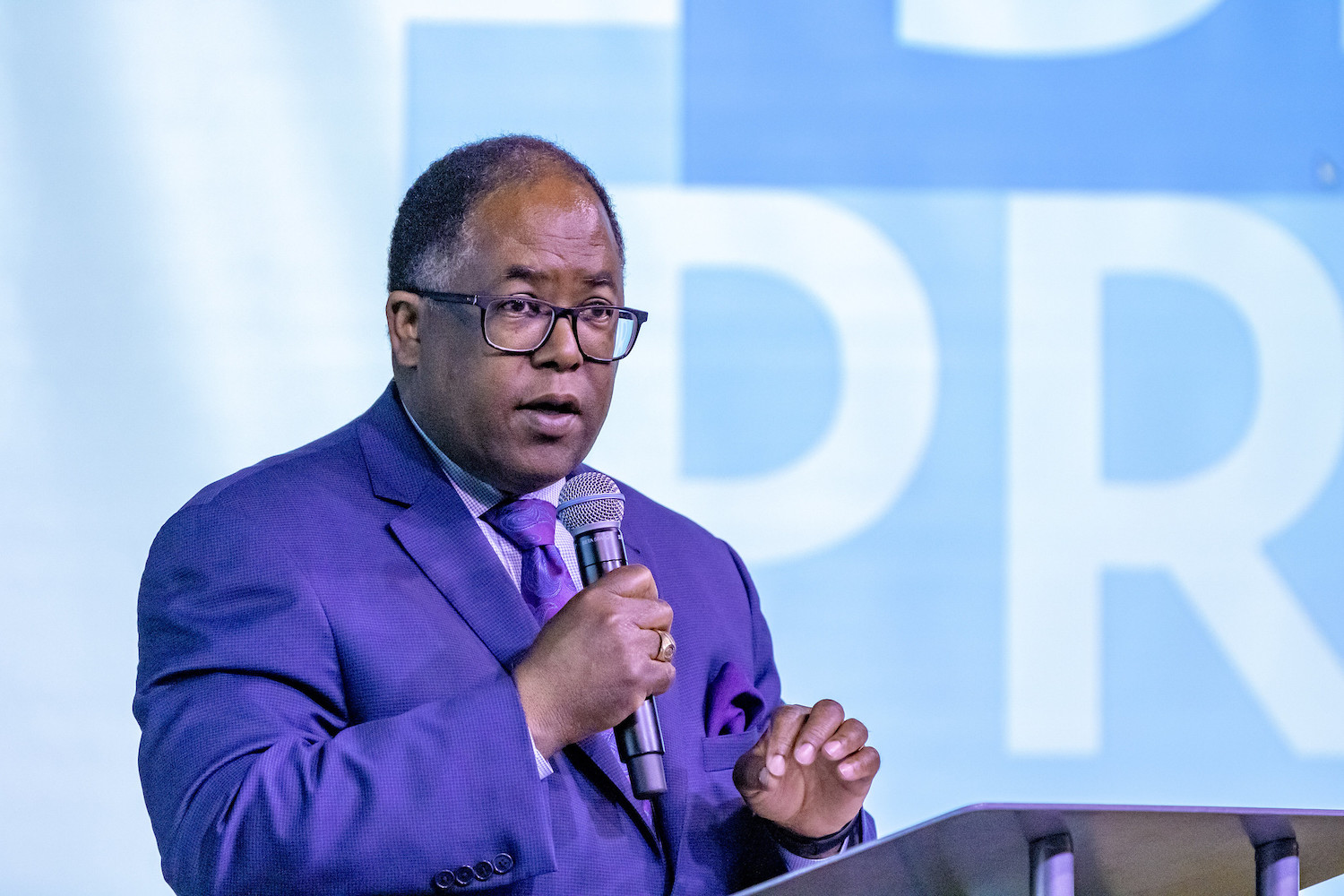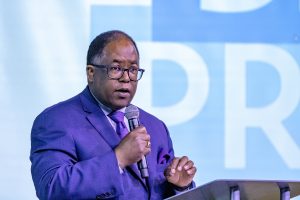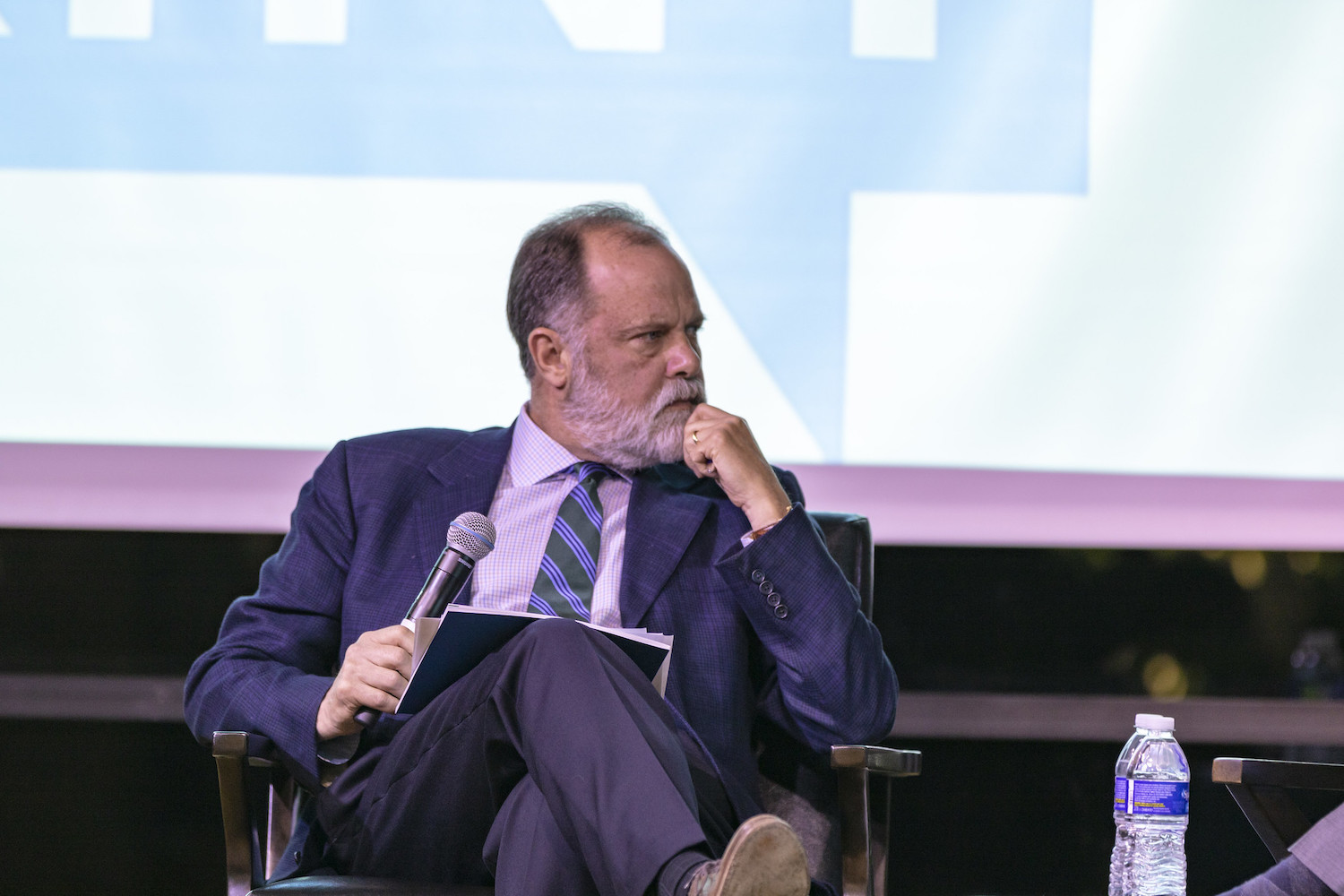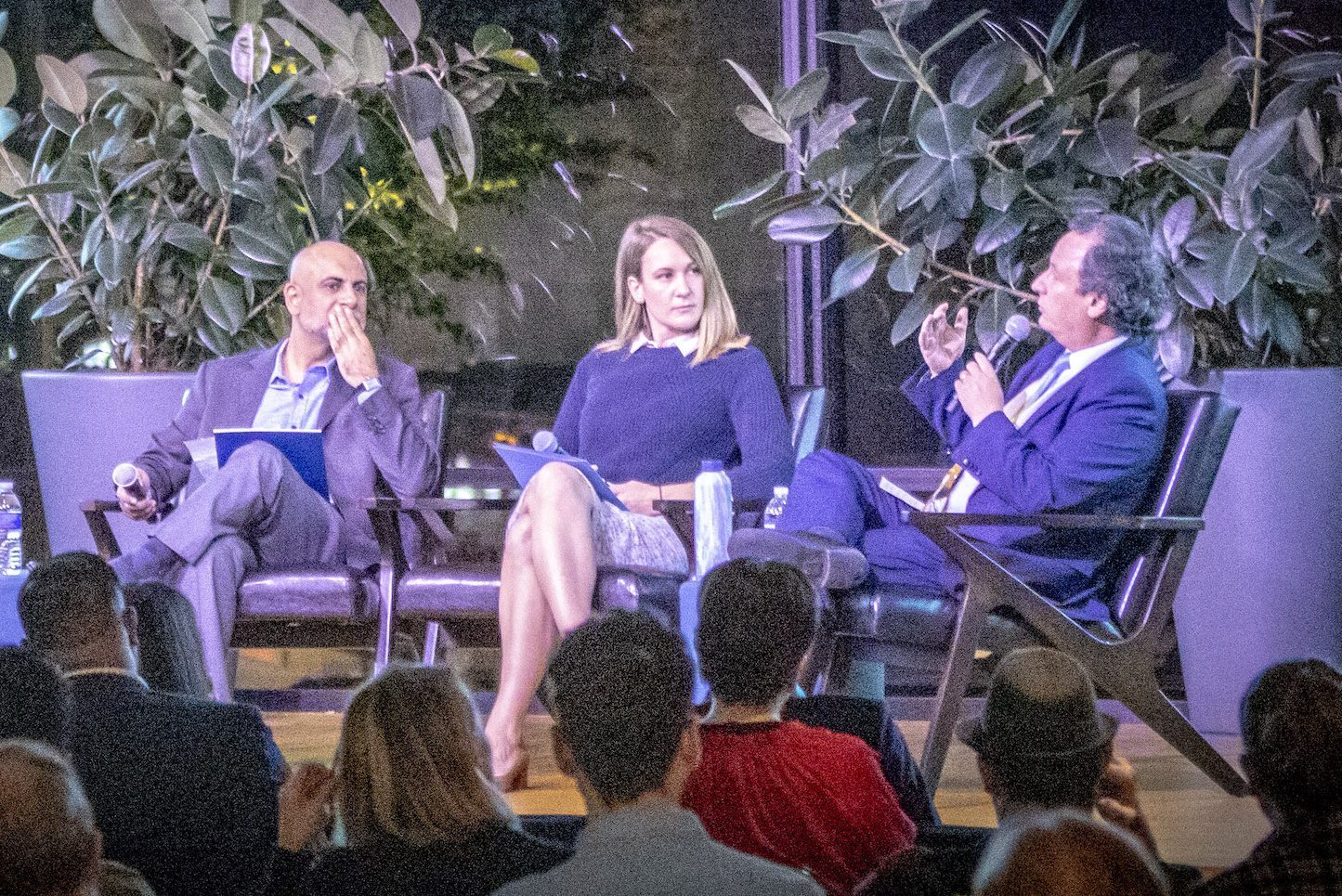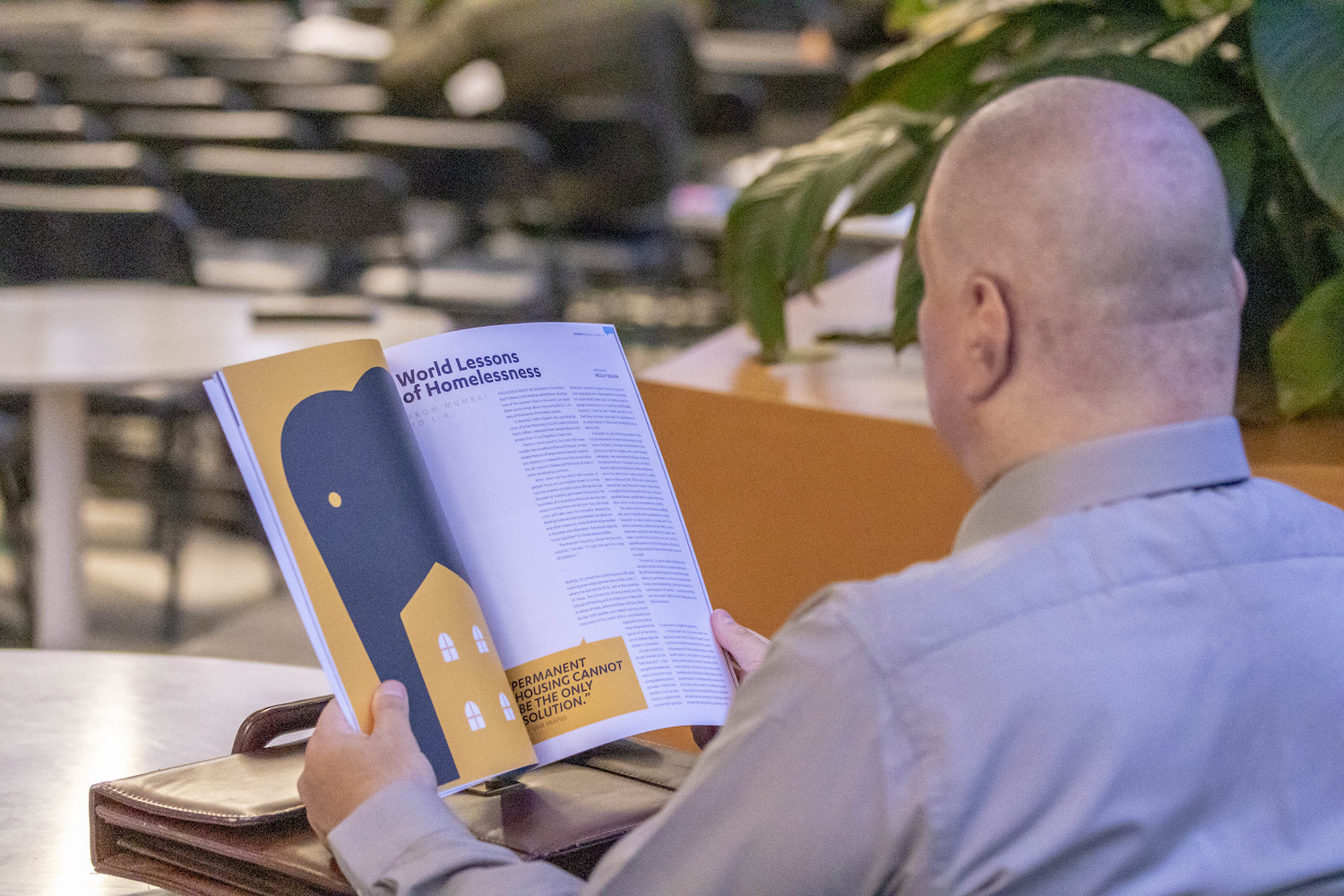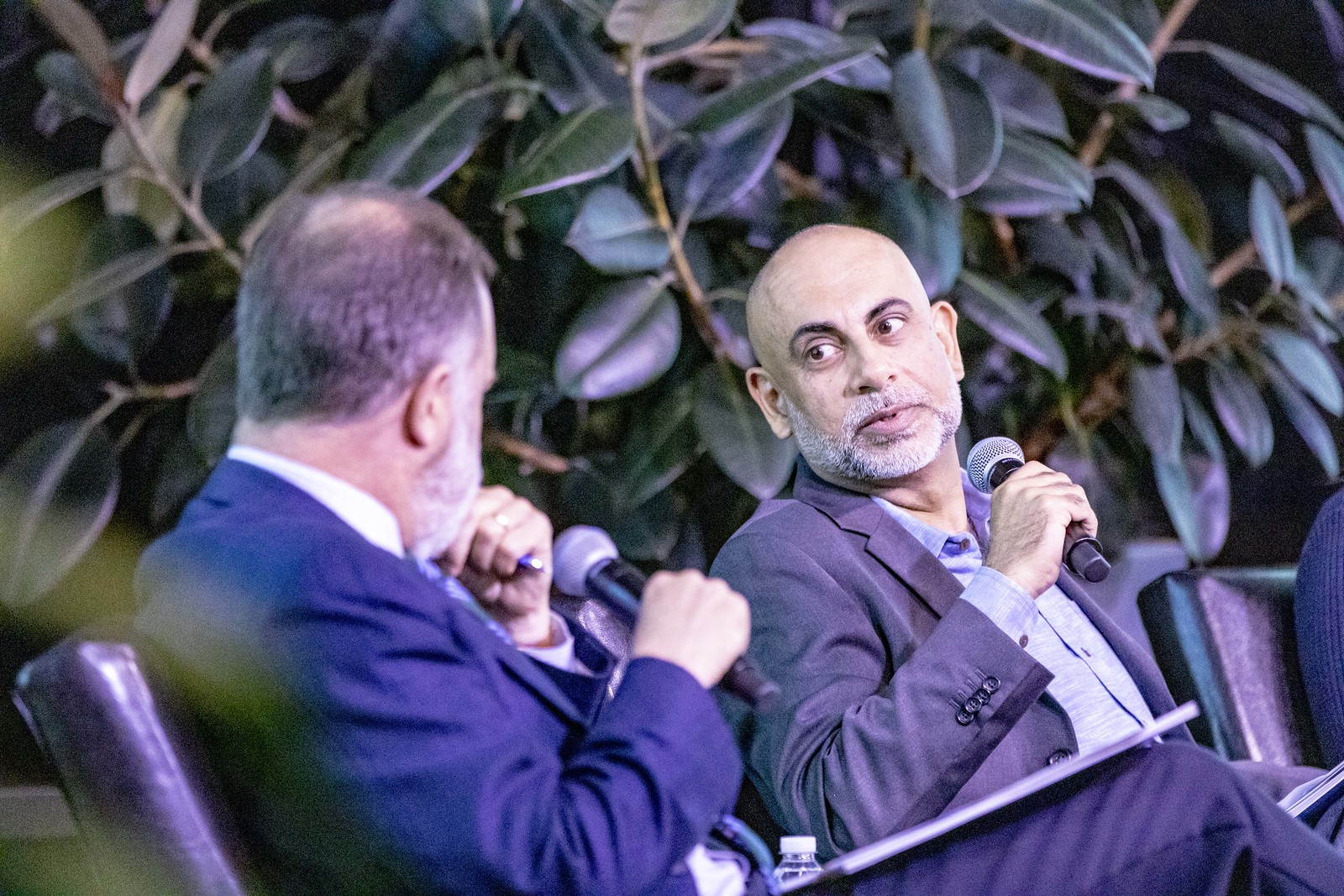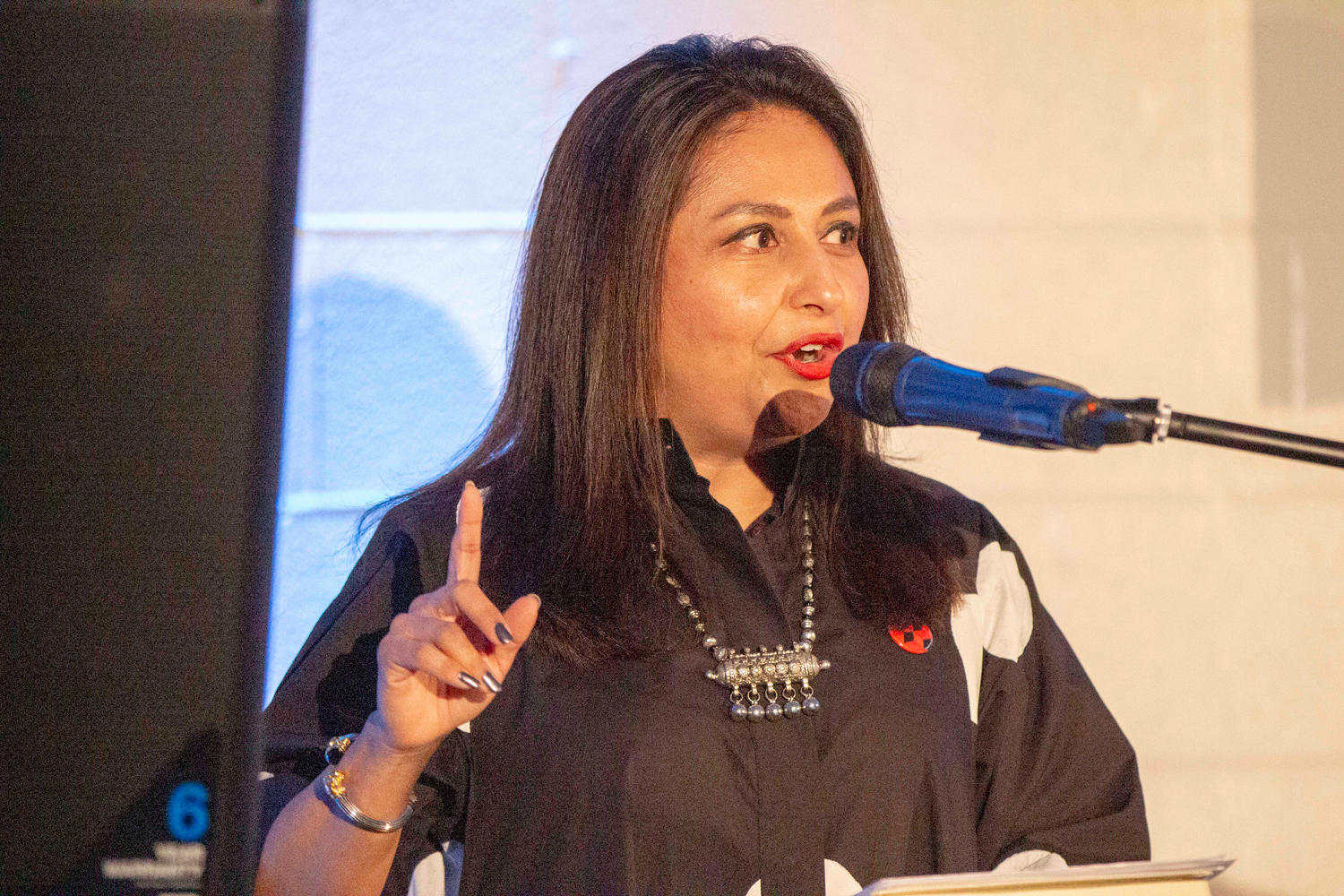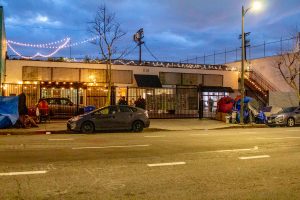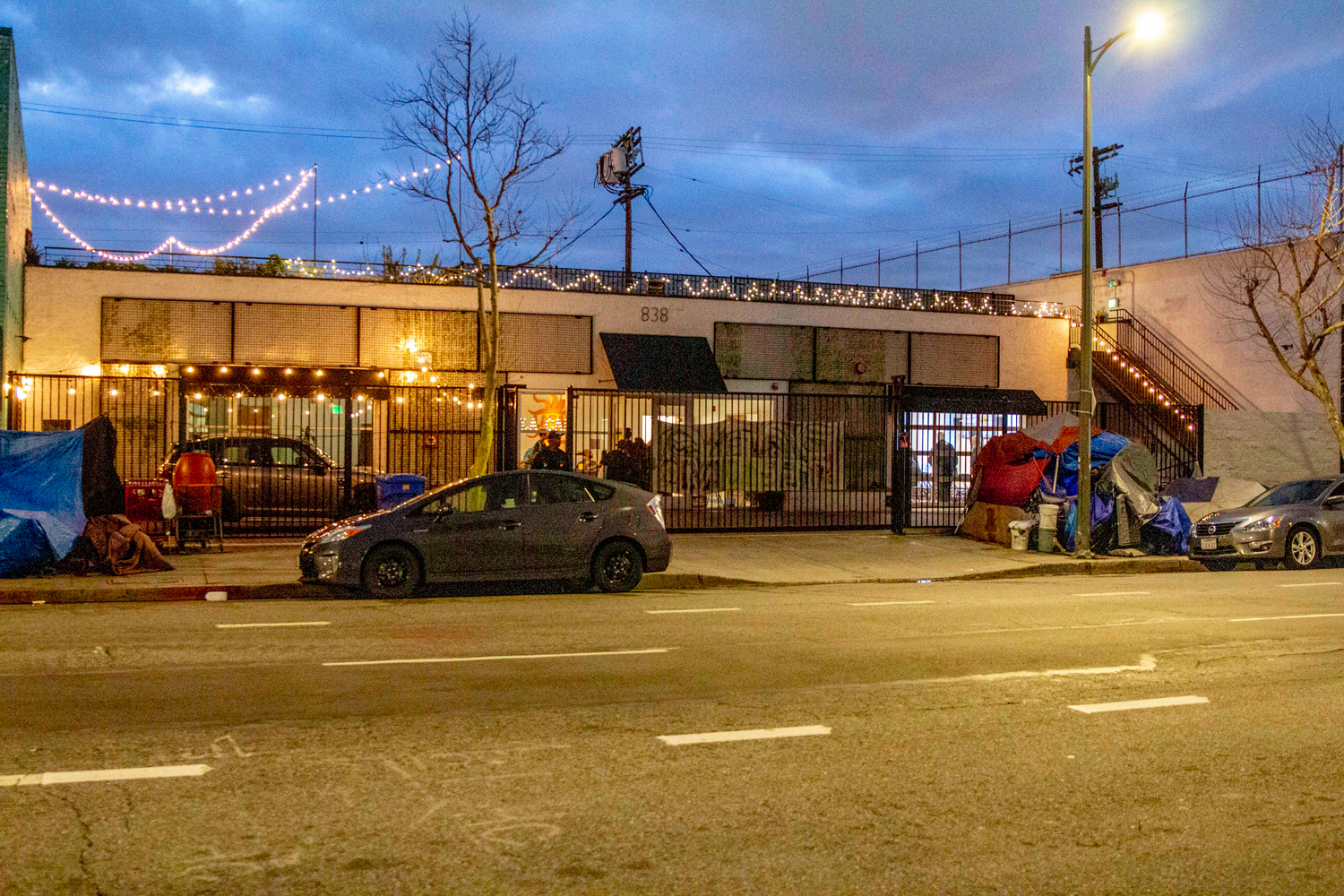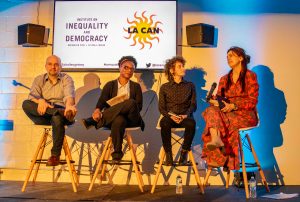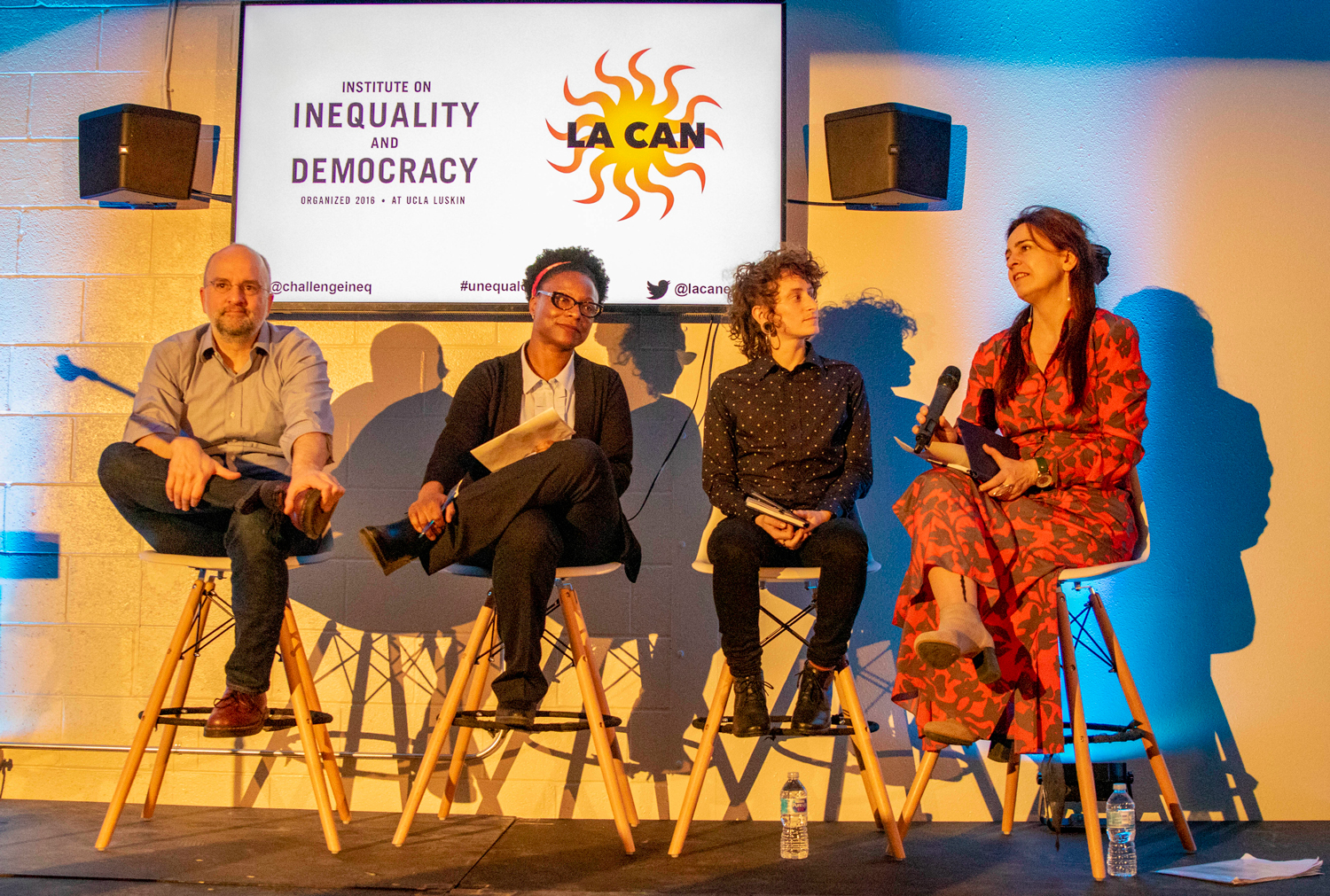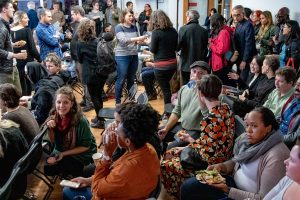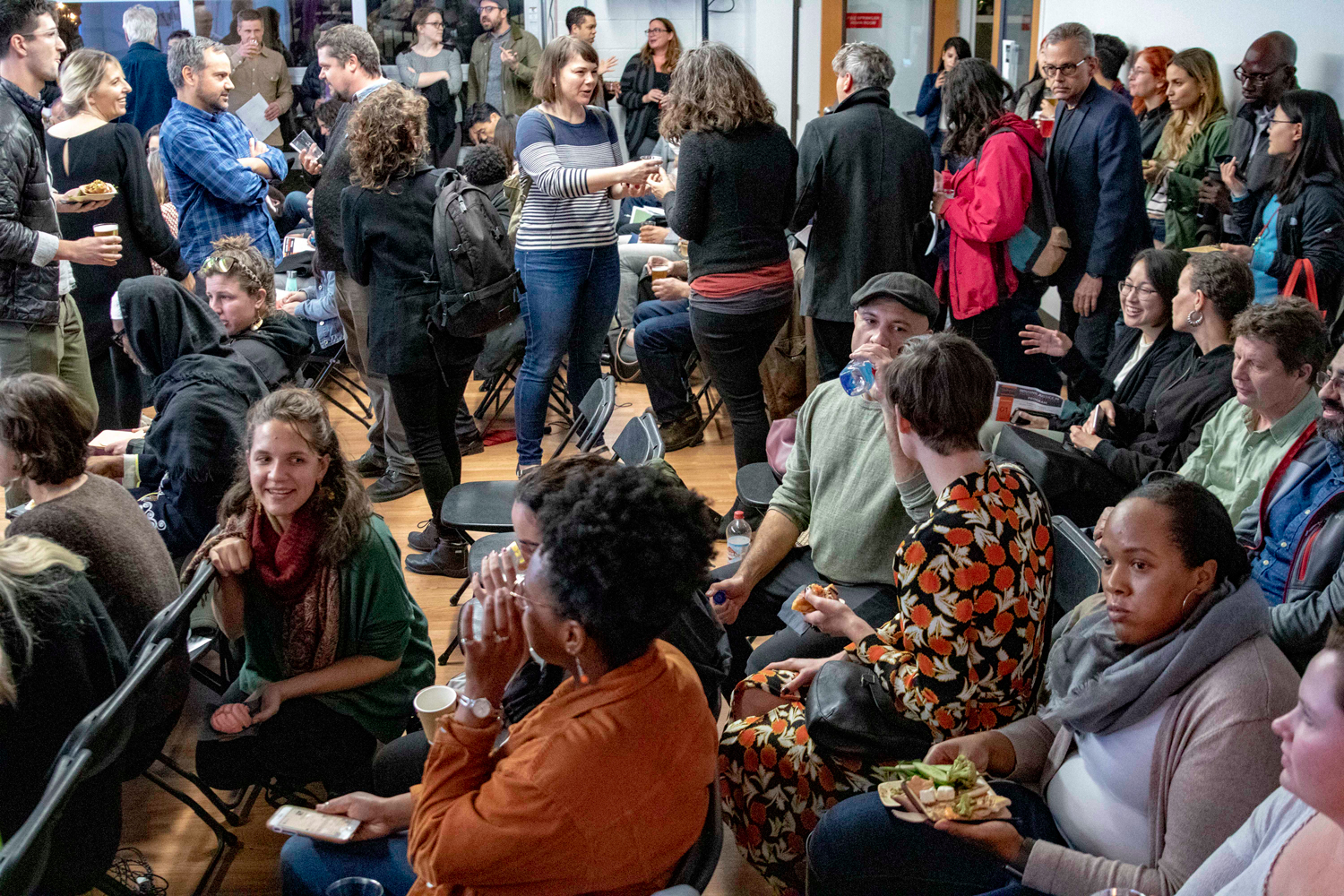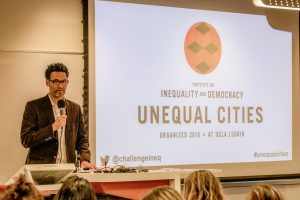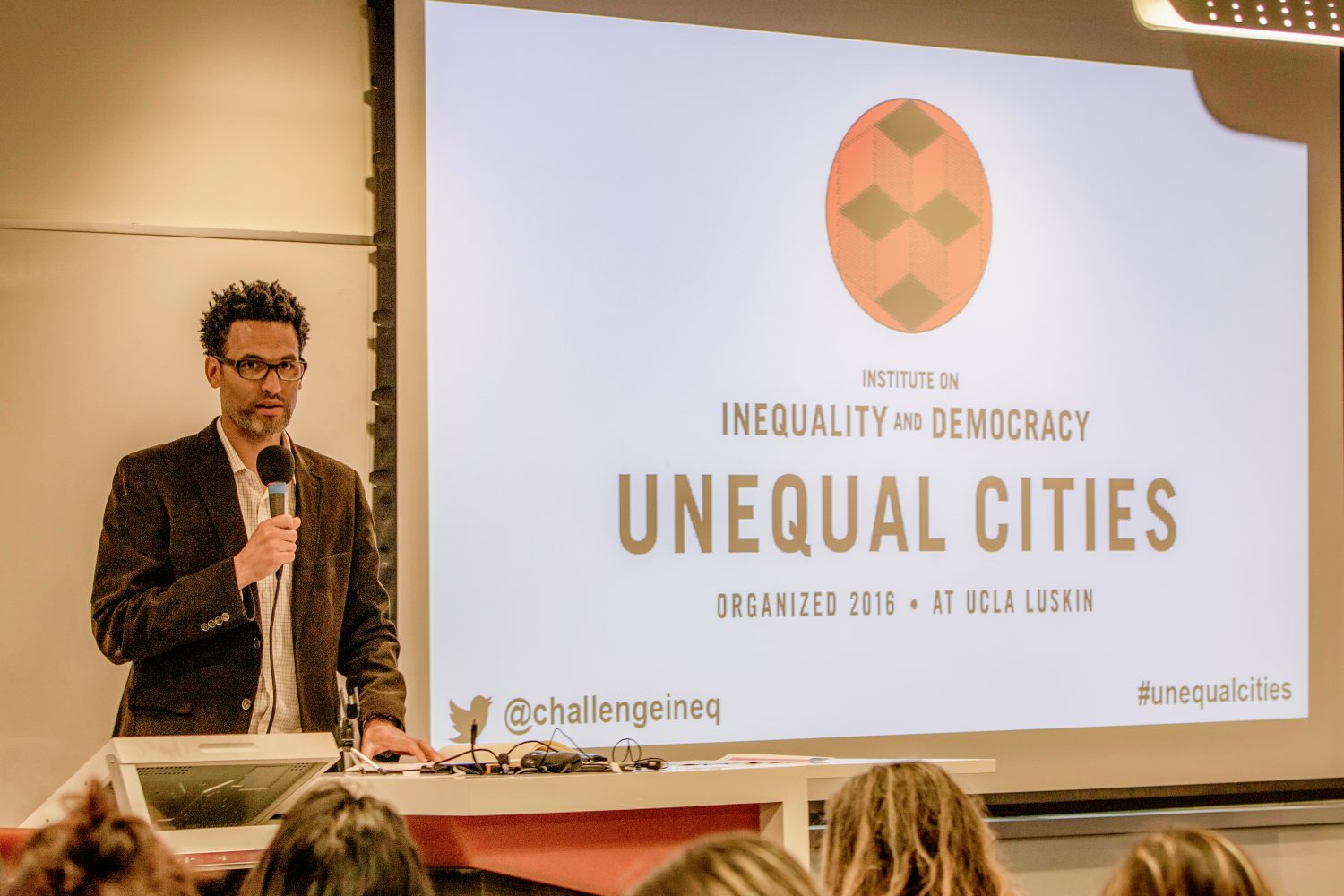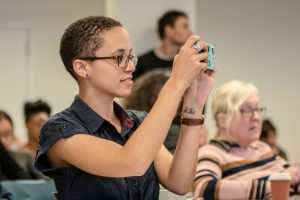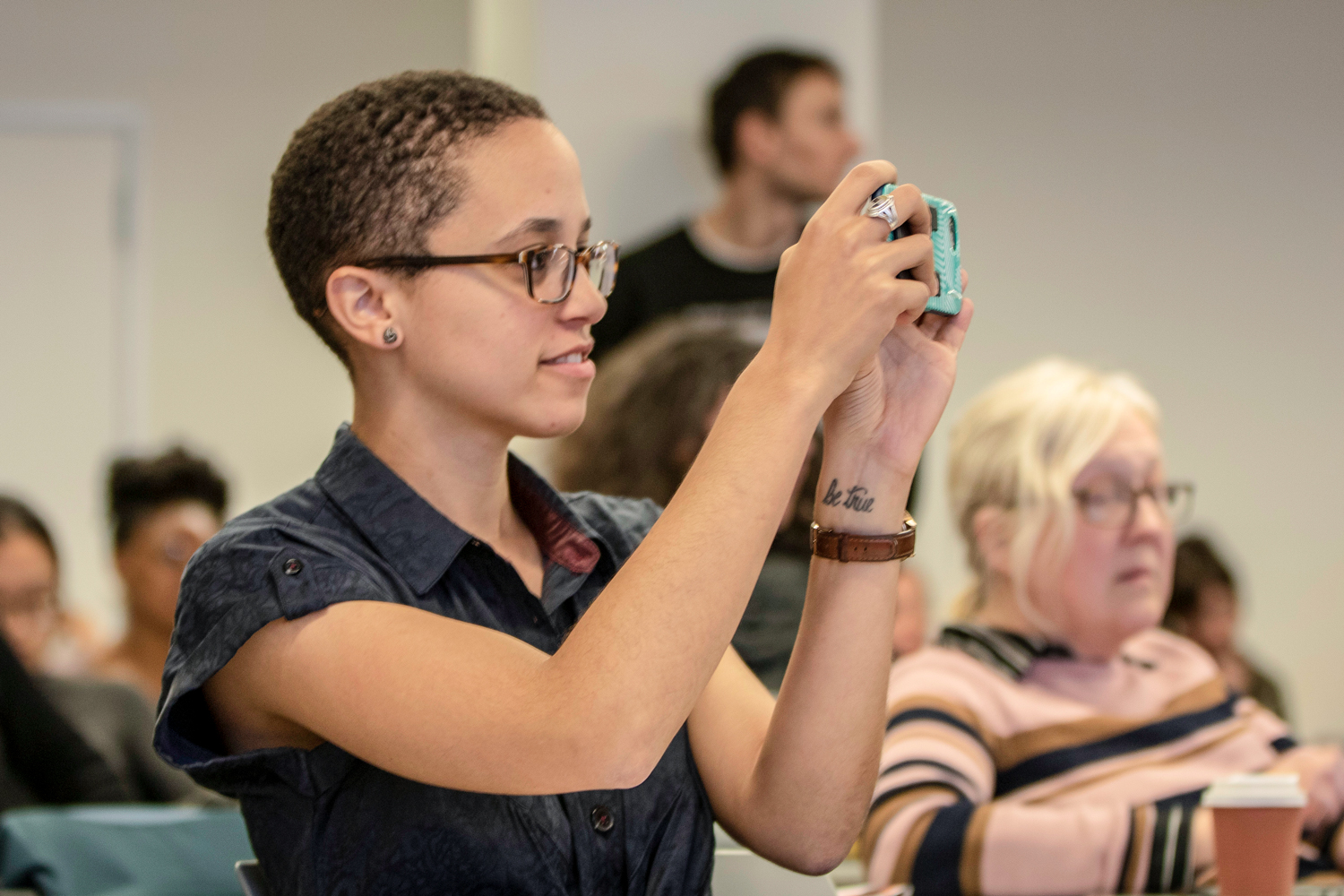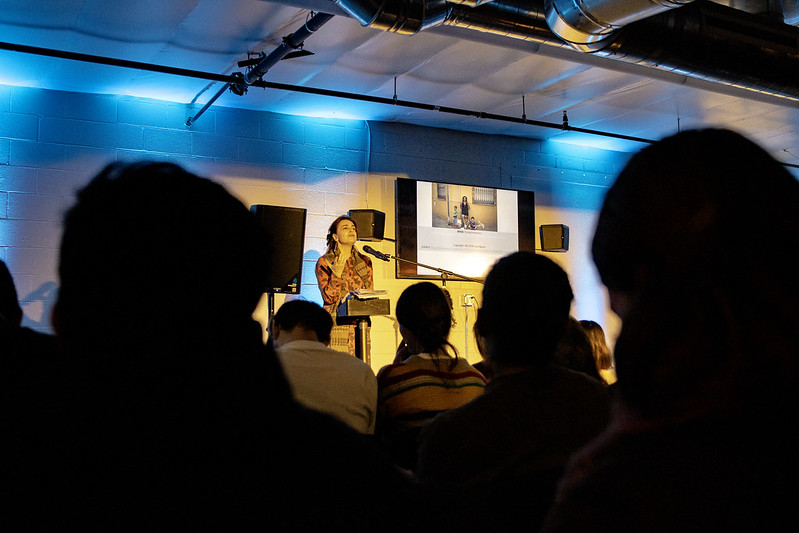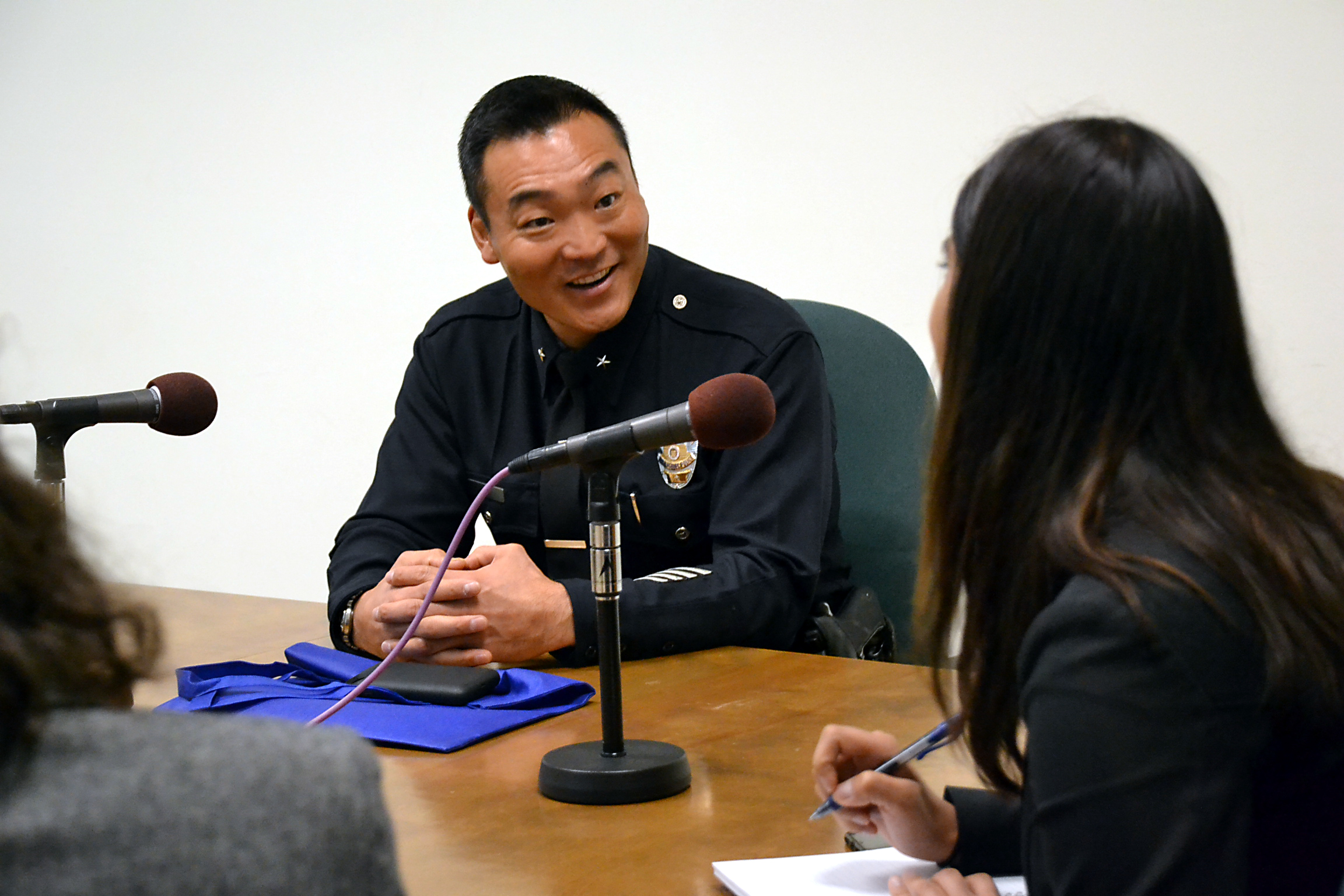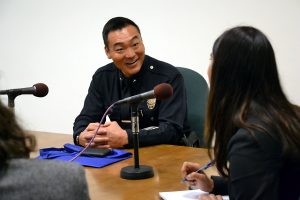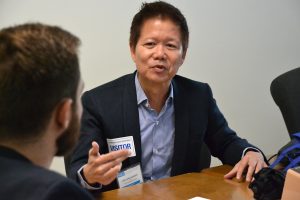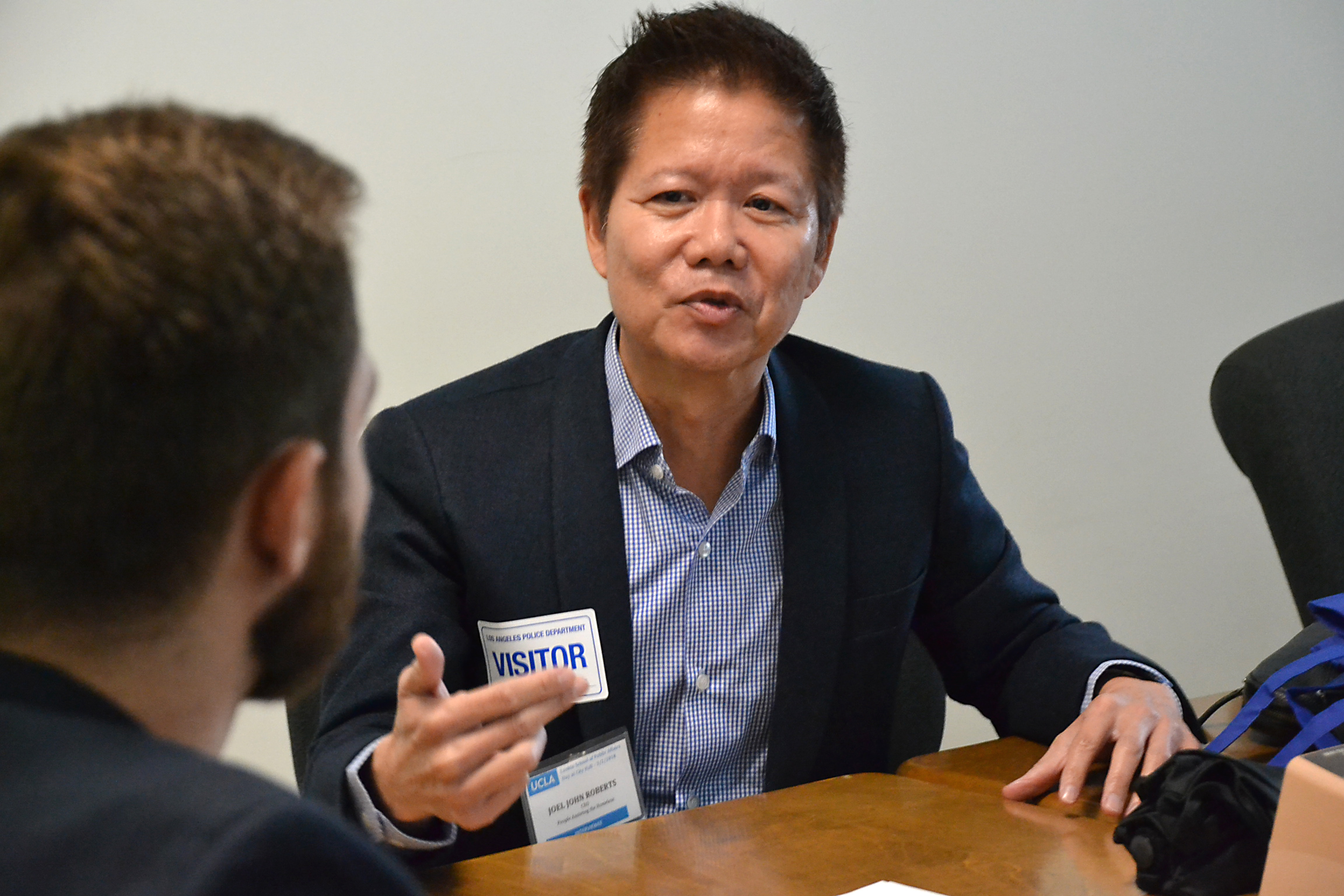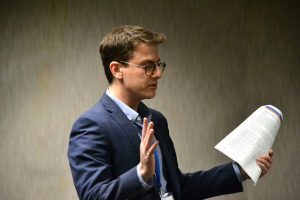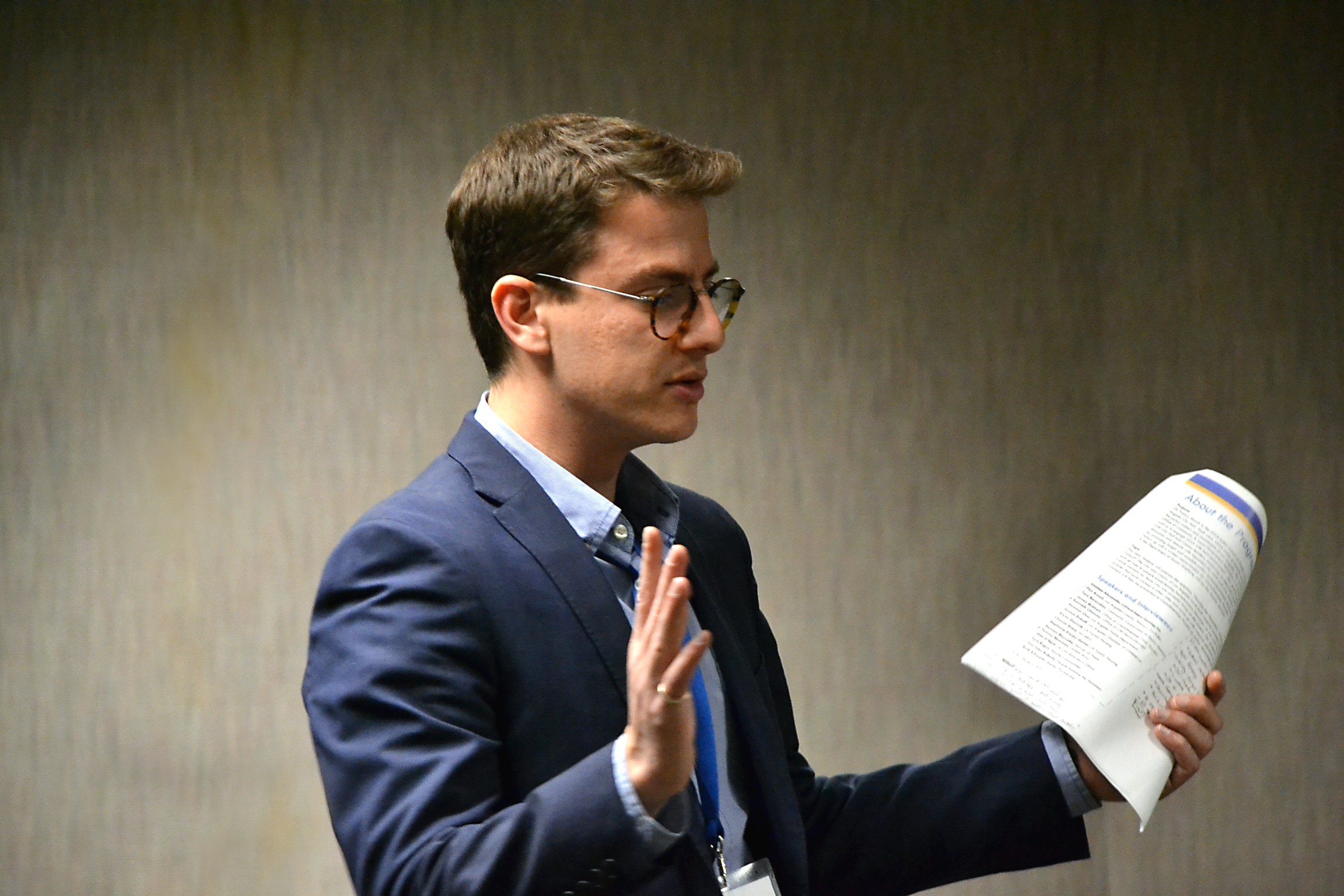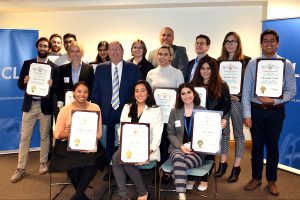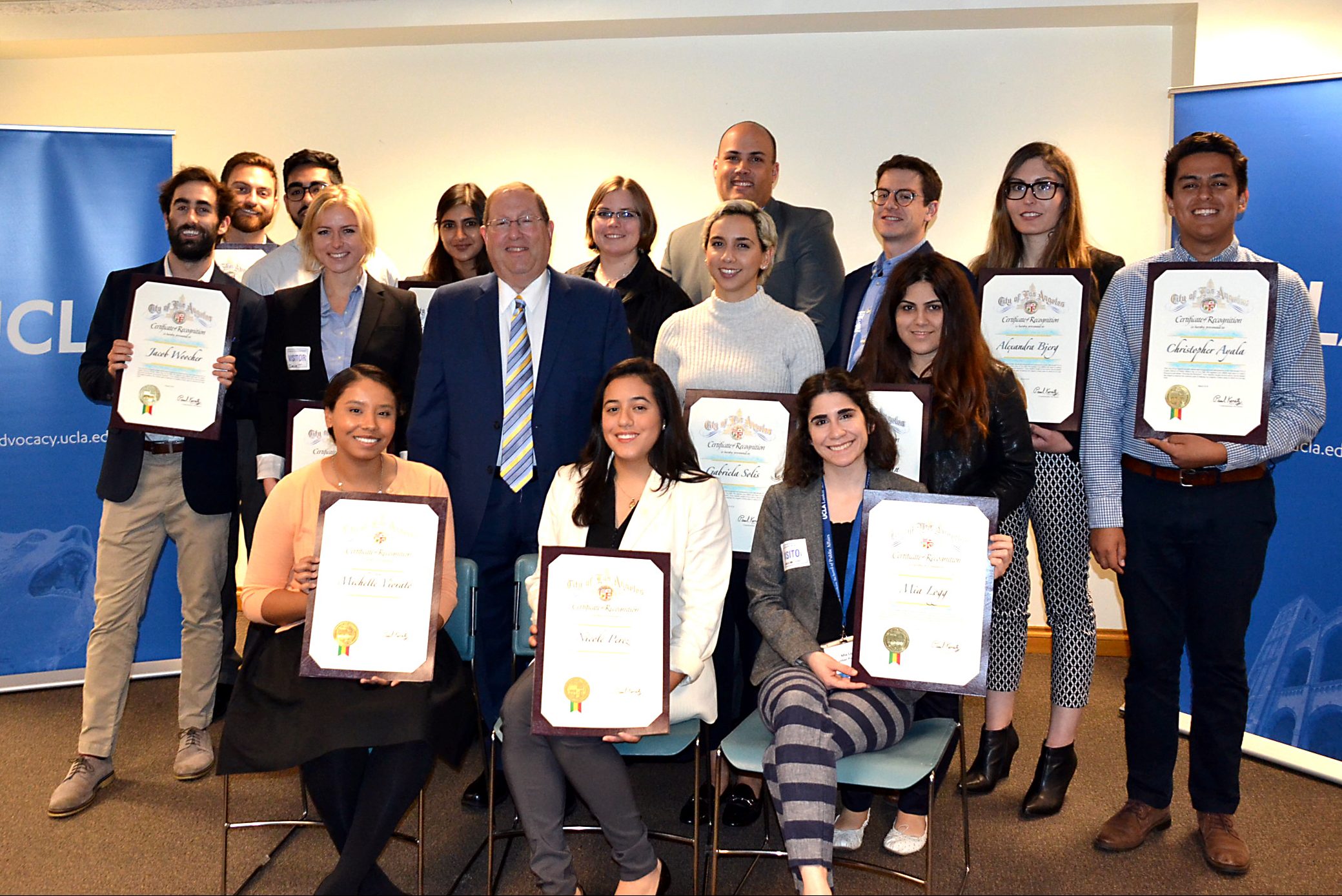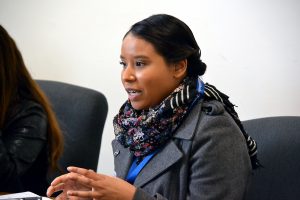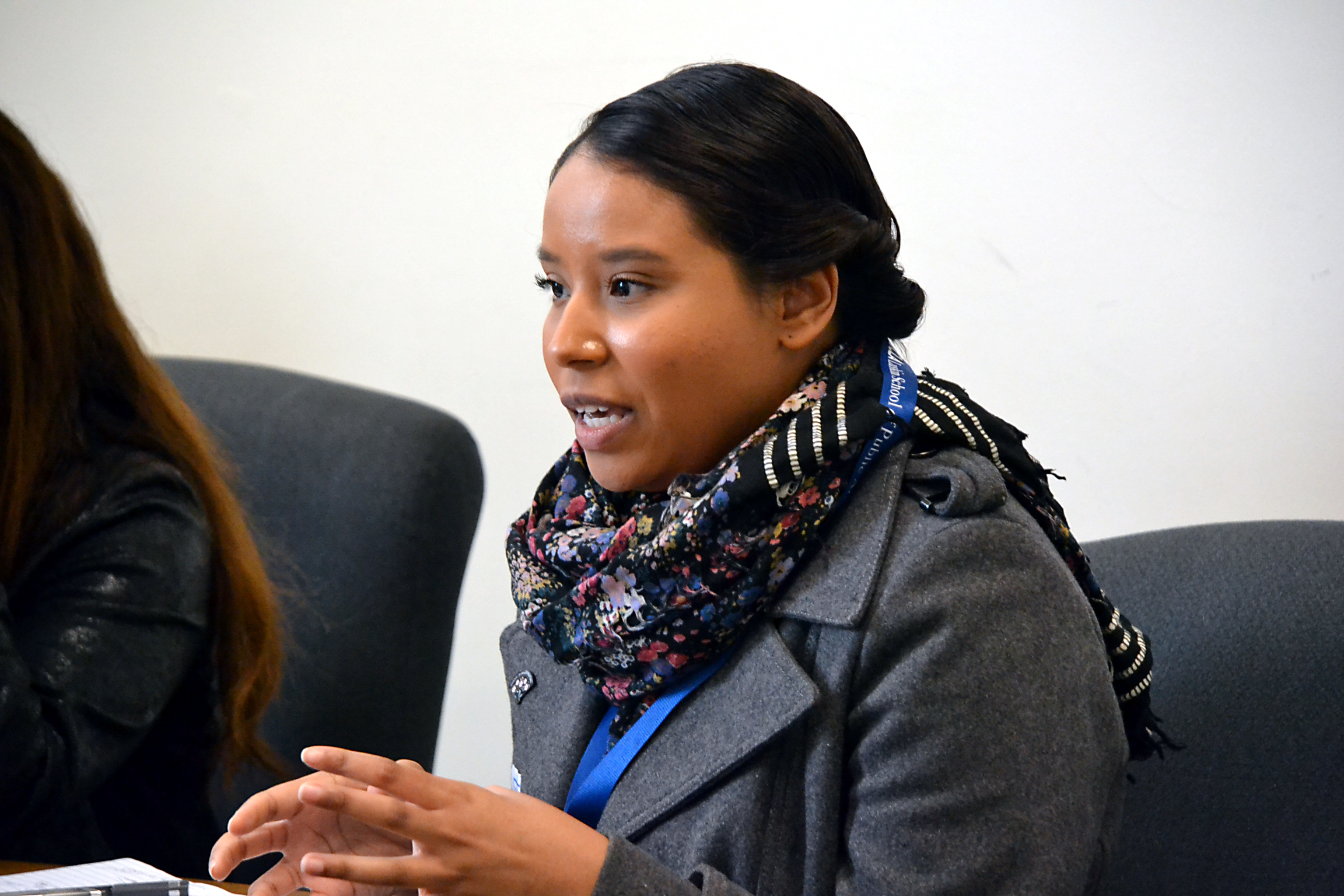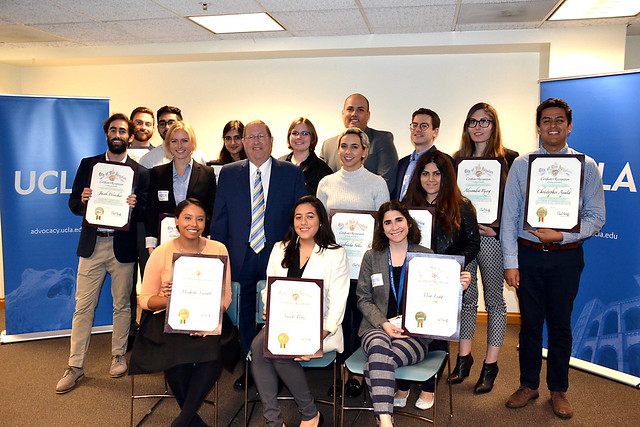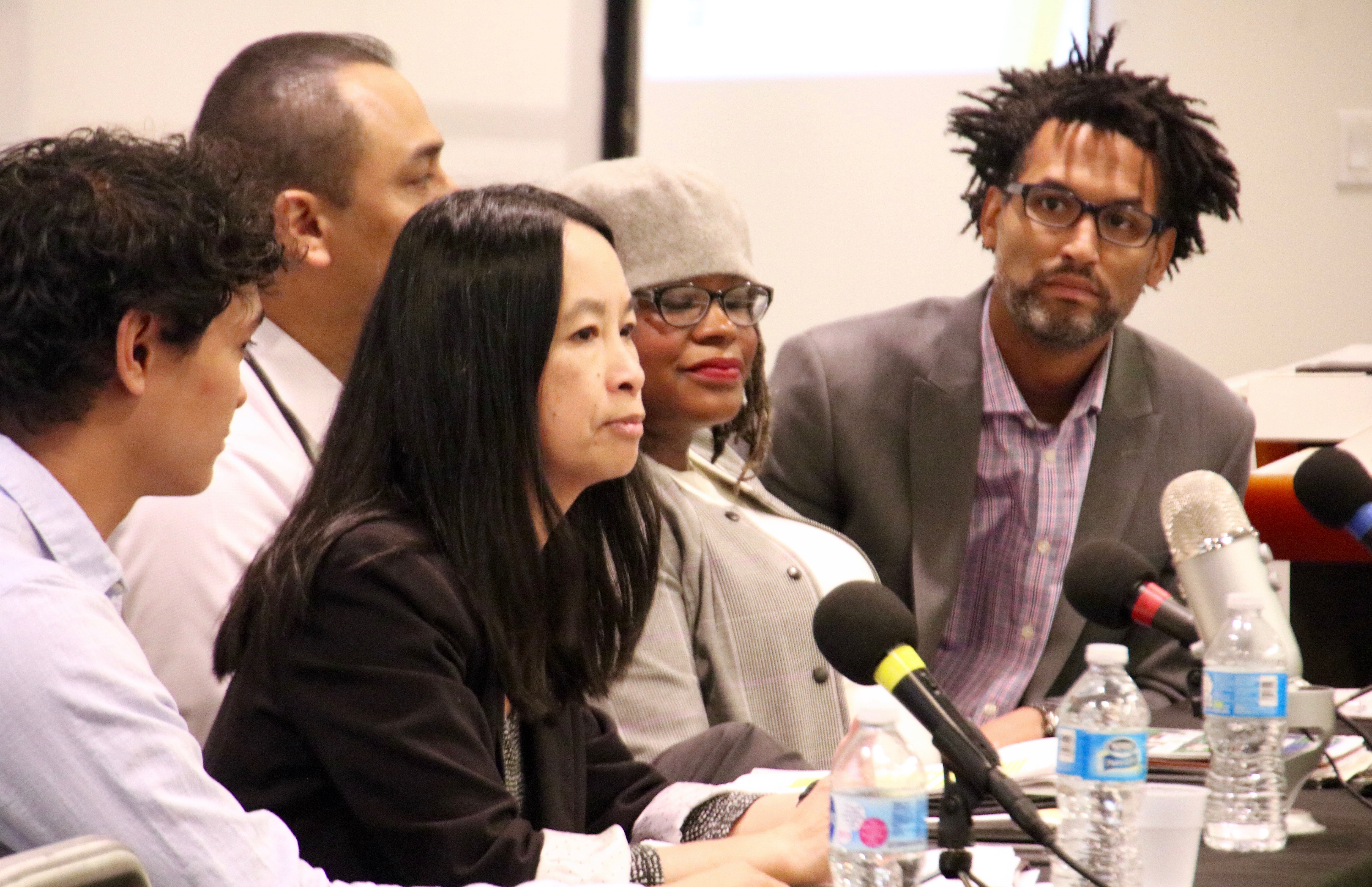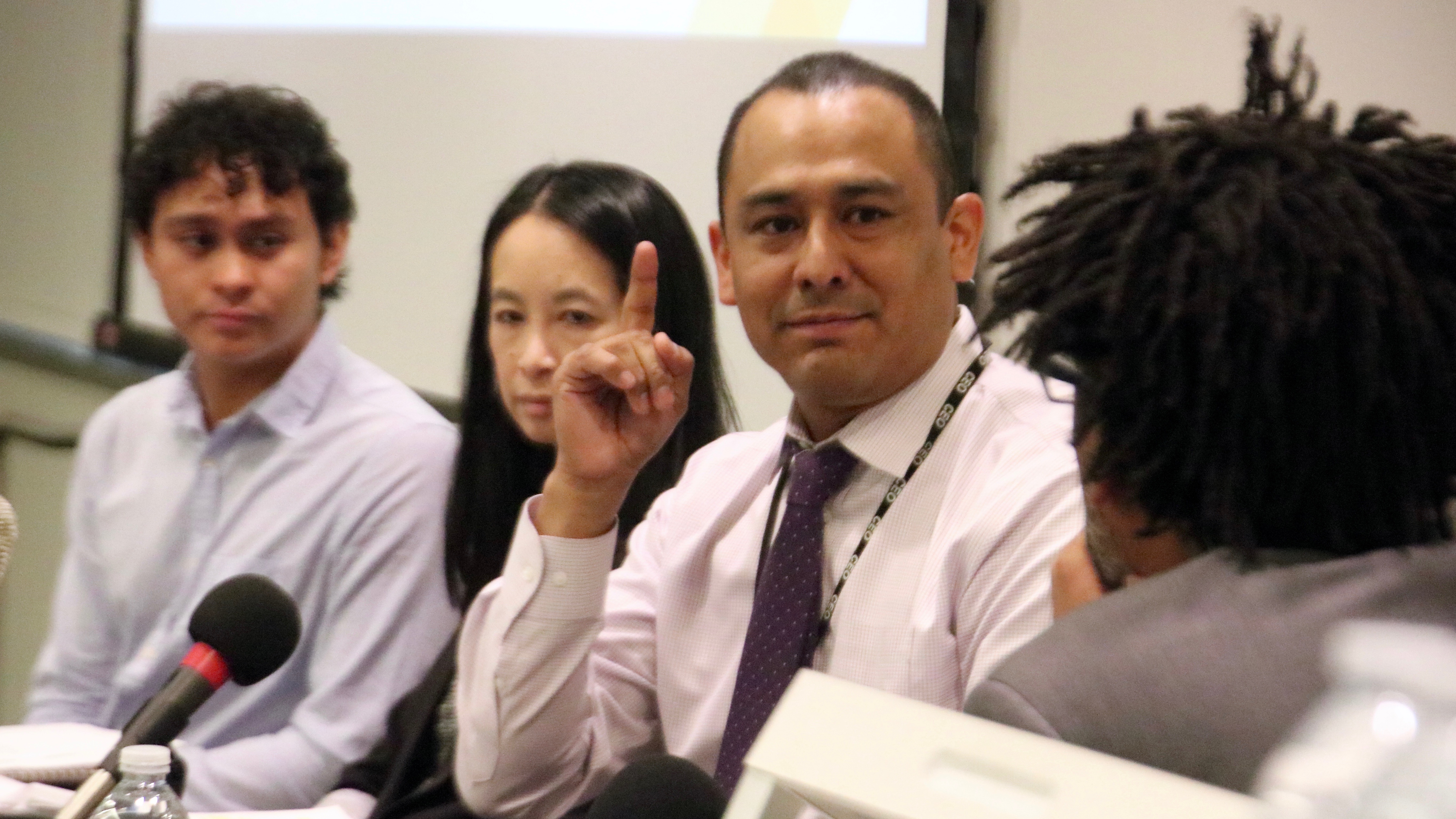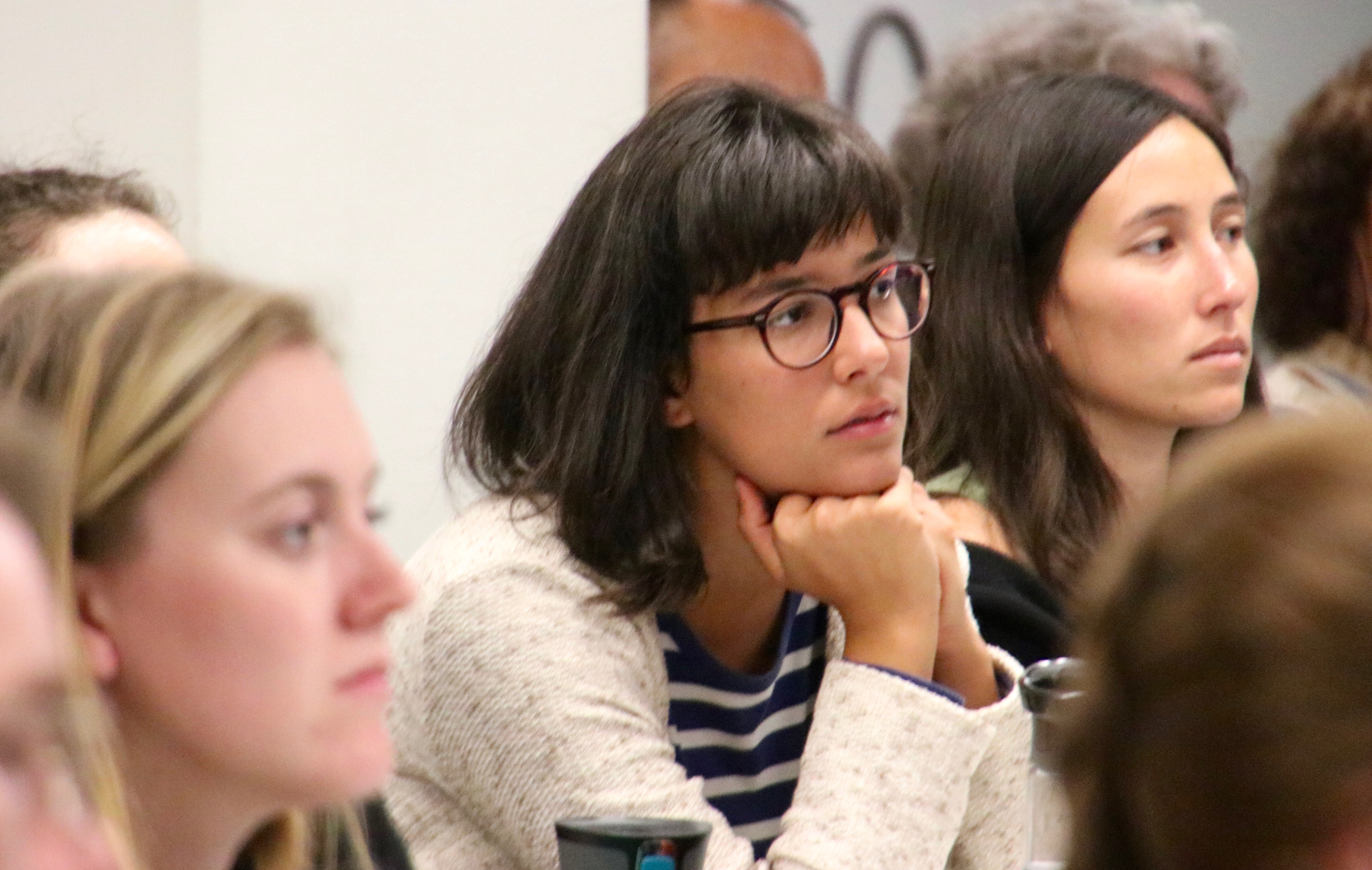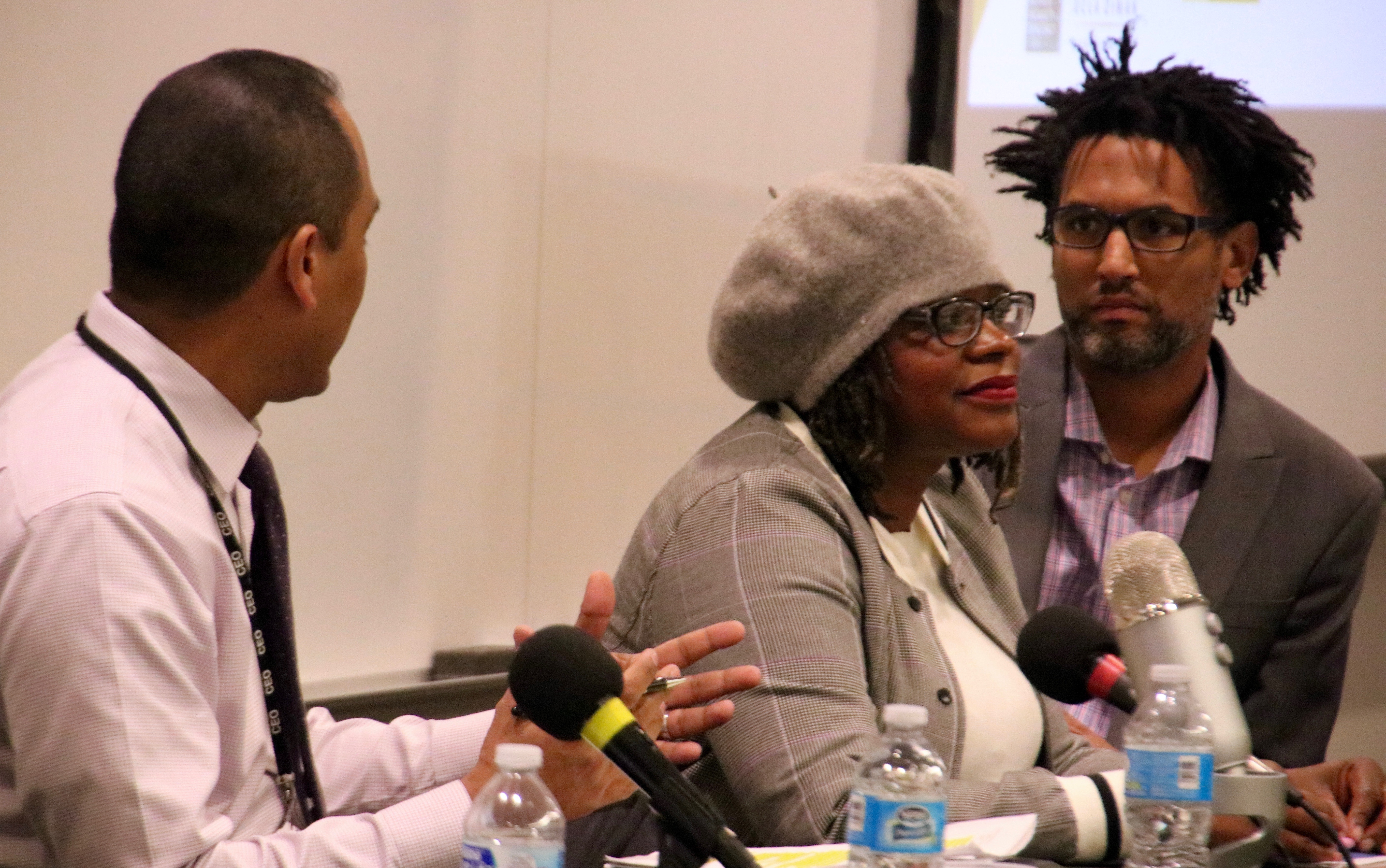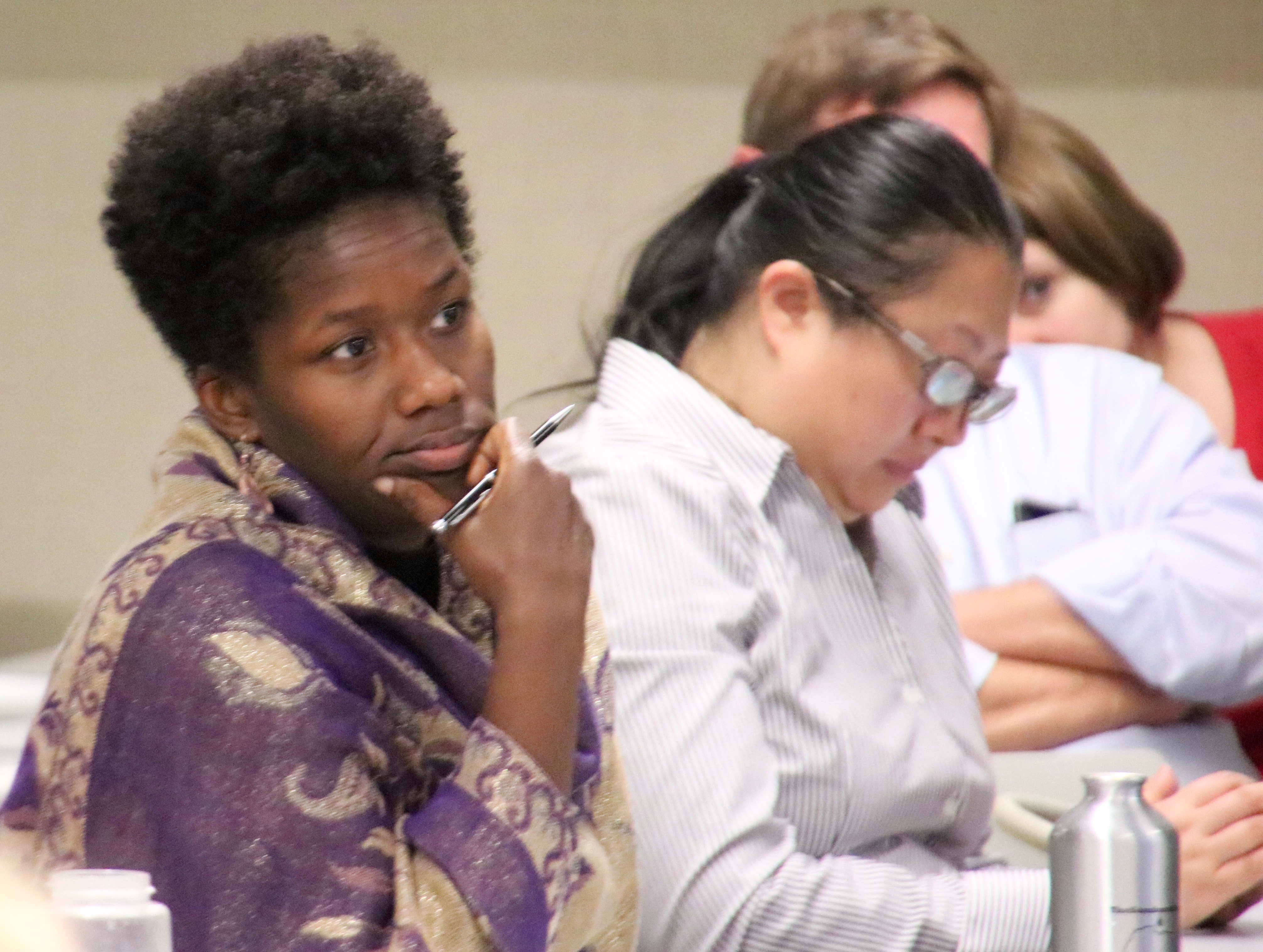Informing Policy in Real Time: LPPI in Sacramento Latino Policy and Politics Initiative shares new research on voting, housing and health with stakeholders in the state capital
By Celina Avalos and Sonja Diaz
On May 20, the UCLA Latino Policy and Politics Initiative (LPPI) hosted its second annual California Latino Legislative Policy Briefing in Sacramento.
Fifty policy advocates, legislative staff members and community leaders attended the briefing at Sacramento’s La Cosecha venue to learn more about LPPI’s latest research findings and discuss policy interventions that improve the lives of California’s residents.
The briefing, co-hosted by the California Latino Legislative Caucus and UCLA Government and Community Relations, featured research presentations by three LPPI faculty experts: Gary Segura, dean of the UCLA Luskin School of Public Affairs; Melissa Chinchilla, a postdoctoral fellow at the U.S. Department of Veterans Affairs; and Arturo Vargas Bustamante, associate professor of health policy and management at the UCLA Fielding School of Public Health.
The briefing covered voting, housing and health, three areas that present critical policy challenges for the California legislature. Each issue has unique impacts on Latinos, who make up a plurality in the state. LPPI’s legislative briefing provided a unique opportunity for leaders to better understand policy solutions that address the disparities faced by Latinos.
Segura kicked off the policy briefing with his timely research on public opinion trends leading to the 2020 presidential election. LPPI research documented a 77% increase in Latino votes cast in the 2018 midterm election, compared to the 2014 midterm election. Segura explained that the leading public opinion sentiments that influenced Asian American, black and Latino voters were immigration, the #metoo movement, access to affordable health care and support for gun laws. Across the board, voters of color embraced Democratic positions on guns, health care and immigration at higher rates than their white peers. On the whole, the 2018 election illustrated the upward growth of the Latino vote in and beyond California, Segura said.
In her policy presentation on Latino homelessness in Los Angeles County, Chinchilla cited the lack of accurate data on Latinos facing housing insecurity, leading to an undercount of the demographic group. Homelessness is not a one-size-fits-all narrative, Chinchilla said, citing findings from her LPPI report, “Stemming the Rise of Latino Homelessness.”
“Many factors contribute to the undercount of Latinos facing housing insecurity, like immigration status, economic vulnerability, and cultural and language barriers,” she said.
Vargas Bustamante concluded the policy briefing with his work on the shortage of Latino physicians in California.
“As California’s plurality, Latinos will represent 44.5% of California’s population by 2050. However, currently only 4.7% of physicians in California are Latino,” said Vargas Bustamante, sharing findings from his report, “Latino Physician Shortage in California: The Provider Perspective.”
Factors contributing to the shortage are lack of financial support and opportunity, academic disadvantages, underrepresentation and citizenship, he said.
LPPI’s briefing provided an opportunity for leading policy stakeholders to hear timely research centered on the needs of the state’s plurality. The briefings build upon LPPI’s legislative portfolio of engaging elected and appointed officials on critical policy issues with data and facts, breeding new research-practice partnerships and accelerating the capacity for evidence-based policy.
